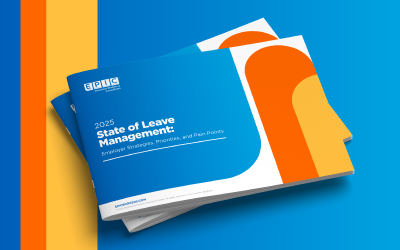Quick Facts
- Employers are generally permitted to require vaccinations so long as reasonable accommodations are offered to those with a disability or religious objection.
- Employers are generally allowed to provide incentives to employees who obtain the COVID-19 vaccine so long as they follow wellness rules under HIPAA and the EEOC.
- Generally speaking, limitations or exclusions on eligibility or group medical plans based on vaccination status are not recommended.
Background
Now that COVID vaccinations are readily available to all but young children, more employers are looking to encourage, and in some cases mandate, employees and their family members to get vaccinated. There is certainly flexibility for employers to do so, but employers need to be aware of compliance requirements that may apply depending upon what type of policy the employer implements.
Mandatory Vaccine Policy
Employers are generally permitted to require vaccinations so long as reasonable accommodations are offered to those with a disability, in accordance with the Americans with Disabilities Act (ADA) or religious-based objection to receiving the vaccine under Title VII of the Civil Rights Act. You can see more guidance on this from the Equal Employment Opportunity Commission (EEOC) in subsection K.
For employers considering a mandatory vaccination program for employees, we recommend discussing the details of the program with employment law counsel to discuss any specific restrictions on how the information can be collected, used, and stored. There may be additional considerations if the information is asked as part of the hiring process. Employers should also discuss with counsel any consequences the employer wishes to impose on those employees choosing to remain unvaccinated (e.g., not being able to work onsite, reduction in pay, termination of employment, etc.). Note that there are a few states which have passed regulations that prohibit discrimination in the workplace tied to vaccination status. In such states, a mandatory policy may be prohibited completely.
Incentives or Surcharges (Wellness Programs)
Employers are generally allowed to provide incentives to employees who obtain the COVID vaccine or impose a penalty/surcharge on those who choose not to be vaccinated so long as the employer is not overly aggressive with the amount of the incentive or penalty. It may also be necessary to provide a reasonable alternative or an accommodation to those who cannot participate due to health status or a disability.
Providing an incentive or imposing a penalty/surcharge is a type of wellness program likely subject to wellness rules set forth under Health Insurance Portability and Accountability Act (HIPAA) nondiscrimination rules. In addition, depending upon who administers the vaccination, the program may be subject to EEOC wellness rules.
HIPAA Wellness Rules
Regardless of whether the incentive is tied to the employer’s group medical plan, the conservative approach is to follow HIPAA rules because the vaccine program itself is likely a group health plan. In addition, providing an incentive for obtaining a vaccine might be considered health-contingent, rather than merely participatory, since health status may prevent some individuals from participating and earning the incentive (e.g., immunocompromised, pregnancy, allergies, etc.). However, so long as the employer: (i) offers a reasonable alternative standard or waives the requirement for those who cannot participate due to health status and provides notice of the availability of a reasonable alternative standard; and (ii) limits the incentive to no more than 30% of the cost of health coverage, it should be okay under HIPAA wellness rules. Note that the 30% incentive limit would also need to take into account other wellness incentives provided by the employer. Finally, keep in mind that if the vaccine program is itself a group health plan, then HIPAA privacy and security requirements may apply as well, which could limit how the information collected may be used or disclosed. For more guidance on how the HIPAA wellness rules apply to vaccine programs read our previous Compliance Matters alert.
EEOC Wellness Rules
The most recent EEOC guidance indicates that if the vaccine is obtained from a third party unrelated to the employer (which is how most individuals are obtaining a vaccination today), it may not be subject to the EEOC rules at all, in which case a reasonable accommodation is not required and there is broad flexibility for the employer to provide an incentive as desired. However, if the employer coordinates an onsite vaccination clinic, then it may be necessary to follow EEOC wellness rules, including providing confidentiality notices, limiting incentives to “voluntary” levels, and providing reasonable accommodations to those who cannot participate due to a disability. Note that there are a few states which have passed regulations that prohibit discrimination in the workplace tied to vaccination status. In such states, an incentive (or surcharge) may not be acceptable.
For more guidance on how the EEOC wellness rules apply to vaccine programs read our previous Compliance Matters alert.
Eligibility and Coverage Exclusions/Limitations
While mandatory vaccination policies and incentives/surcharges tied to vaccination status in the form of a wellness program are generally permitted, we recommend that employers do not condition eligibility or group medical plan coverage levels based on vaccination status.
HIPAA nondiscrimination rules broadly prohibit discrimination based on health status or a health factor (see Treas. Reg. §54.9802-1(b)(1)) and will not allow the plan to deny eligibility for those who have not received the COVID vaccination. Under HIPAA rules, “receipt of healthcare” is considered a health factor. Vaccinations are likely a health factor subject to HIPAA nondiscrimination rules because the individual receives health care in the form of the vaccine. Therefore, the employer should not exclude individuals from participating in the employer’s group medical plan or limit coverage levels (e.g., for COVID-related treatment) for employees or their family members who are not vaccinated.
EPIC Employee Benefits Compliance Services
For further information on this or any other topics, please contact your EPIC consulting team.
Learn About Our Employee Benefits Compliance Services
EPIC offers this material for general information only. EPIC does not intend this material to be, nor may any person receiving this information construe or rely on this material as, tax or legal advice. The matters addressed in this document and any related discussions or correspondence should be reviewed and discussed with legal counsel prior to acting or relying on these materials.
DOWNLOADABLE RESOURCES
Sign up for our Compliance Matters Newsletter
You’ll receive our monthly newsletter, as well as special compliance alerts and invitations to our compliance webinars
Related Content
Products
Employee Benefits Consulting
Our dedicated benefits team is focused on delivering better outcomes – to both your benefits program and ...
Products
Compliance
We provide comprehensive consulting services and in-depth education regarding the ever-changing employee ...
Products
Wellbeing & Health Management
Our consultants help you create a strategy around health management that will impact your culture and your ...


